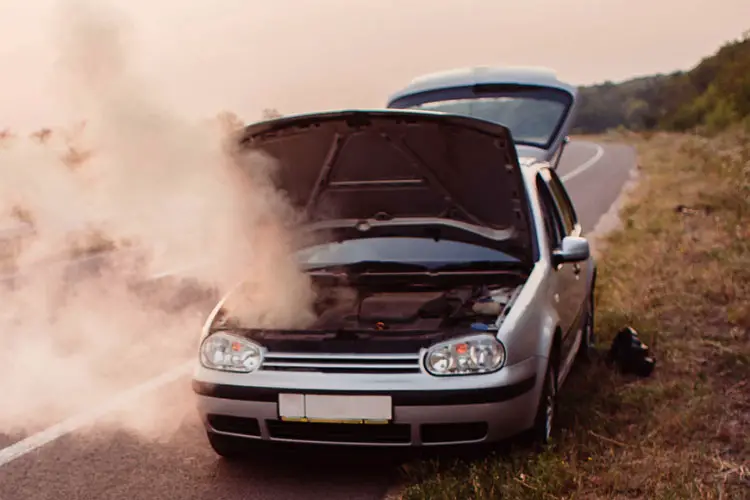A car’s engine is a complex system. A delicate balance of temperature, pressure and lubrication ensures the car doesn’t overheat and shut down. Nevertheless, your car might get overheated and die all of a sudden.
So, why is your car overheated and died? The most common reasons your car might have overheated and died due to
- Low coolant
- A faulty thermostat
- A clogged radiator
- A failed water pump
- A leaking head gasket
In this article, we will look at these causes in detail. We’ll also provide detailed solutions for diagnosing and repairing car overheating problems, whether you are a mechanic or a confident DIYer.
9 Common Causes And Solutions Why Car Overheated and Died
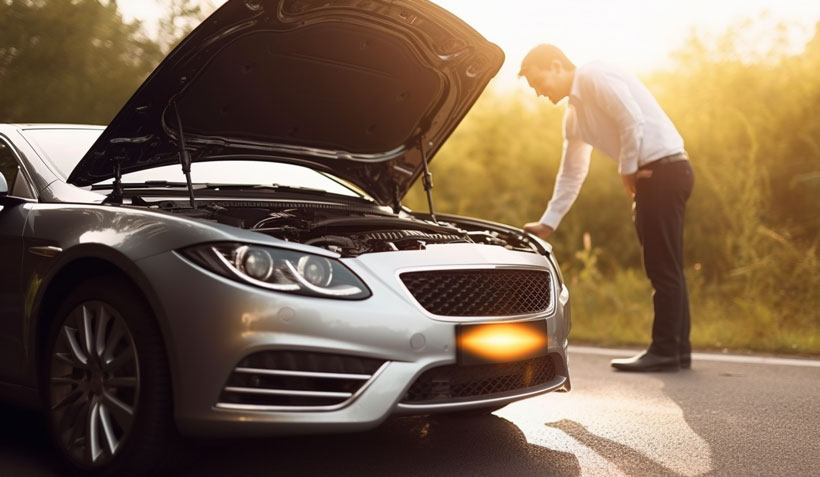
There are 9 causes for your car to overheat; let’s see how to troubleshoot and fix them.
1. Low coolant level
A low coolant level is the most common cause of car overheating. The coolant, also known as antifreeze, is in charge of maintaining the engine’s operating temperature. The engine may overheat and shut down if the coolant level is low.
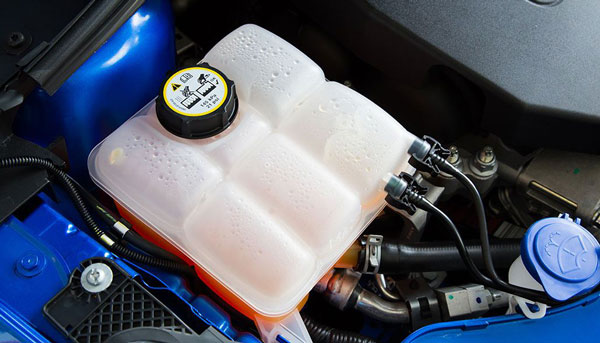
Solution:
Checking and refilling the coolant is a simple solution to this problem. To begin, locate the coolant reservoir near the front of the engine bay. Check the coolant level and, if necessary, add more until it reaches the entire line.
Using the recommended coolant as specified in the owner’s manual is critical. In addition, keep an eye out for leaks, as a low coolant level could indicate a system leak.
2. Faulty thermostat
The thermostat regulates the flow of coolant through the engine. If the thermostat malfunctions, it cannot regulate the flow. Thus, the engine becomes overheated.
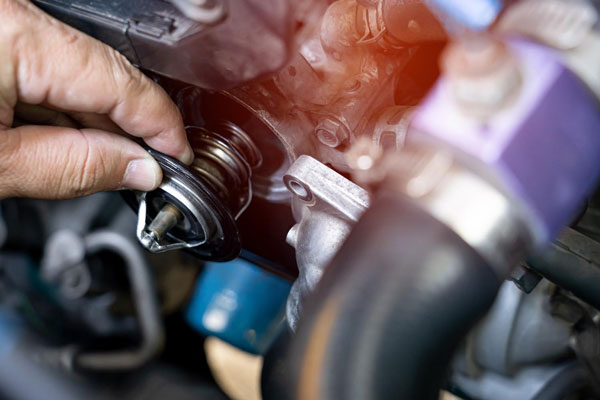
Solution:
This problem can be solved by replacing the thermostat. The thermostat is typically found near the engine block and is accessible by removing the thermostat housing.
It will be necessary to purchase and install a new thermostat and gasket in the housing. This is relatively a simple repair that a mechanic or a competent do-it-yourselfer can complete.
3. Clogged radiator
The radiator is in charge of removing heat from the coolant. When the radiator becomes clogged with debris, the engine can overheat.
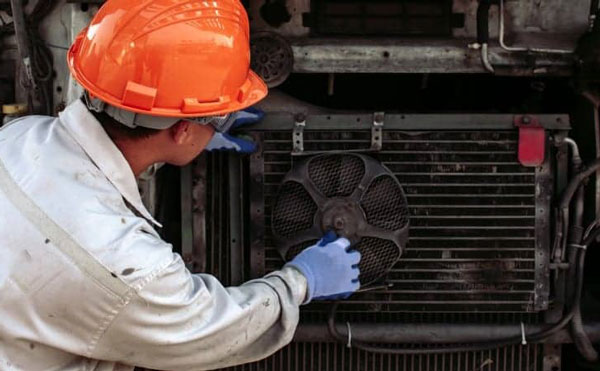
Solution:
The solution to this problem is to flush and clean the radiator. You can do this by draining the coolant, removing the radiator, and then using a special flush solution to remove debris. After that, reinstall the radiator and refill it with new coolant.
4. Water pump failure
The water pump is in charge of circulating coolant throughout the engine. If the water pump fails, the coolant won’t circulate, and the engine overheats.
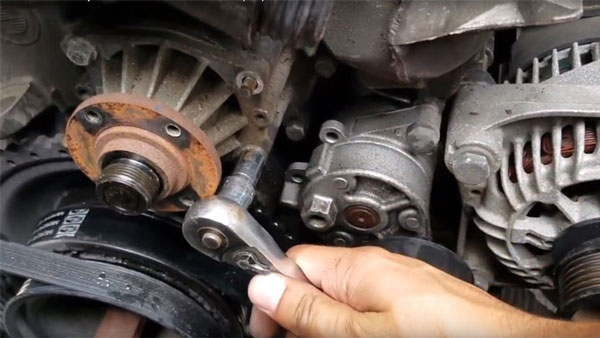
Solution:
The solution to this problem is to replace the water pump. A belt drives the water pump, which is located near the front of the engine. You will need to purchase and install a new water pump.
5. Leaking head gasket
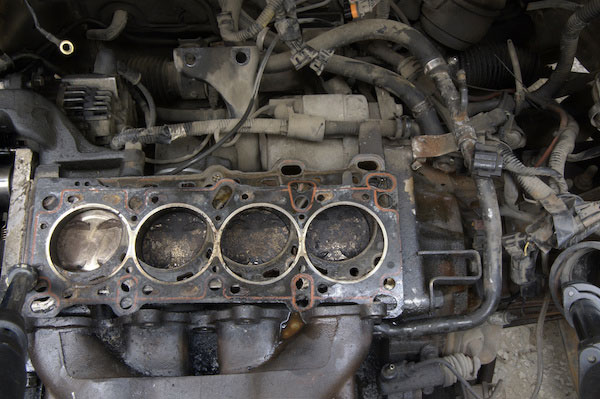
A leaking head gasket can cause coolant to leak into the engine, resulting in overheating.
Solution:
The solution to this problem is to replace the head gasket. This is a more complicated repair that a mechanic should perform. The head gasket seals the combustion chamber and is located between the engine block and cylinder head. A mechanic will need to purchase and install a new head gasket.
6. Faulty fan
The fan is in charge of blowing air across the radiator, which aids in dissipating heat from the coolant. A broken fan can prevent the engine from properly cooling, causing it to overheat and die. A worn-out motor, a broken fan blade, or a faulty relay can all cause a fan to fail.
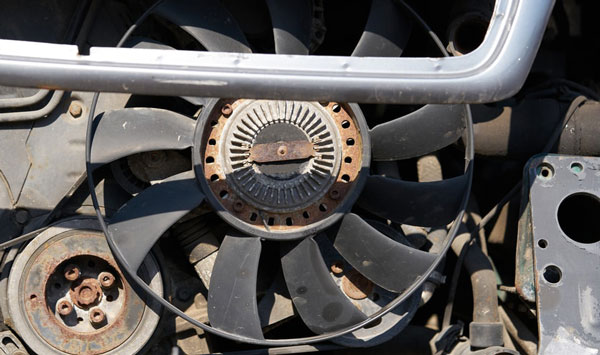
Solution:
To fix this issue, the faulty fan needs to be replaced. This can be a relatively straightforward process, but ensuring that the new fan is the correct one for your vehicle is essential.
7. Air filter clog
The air filter is in charge of cleaning the air that enters the engine. A clogged air filter can reduce engine airflow, causing it to overheat and die. And a clogged air filter can be caused by dirt, debris buildup, or an oil leak.
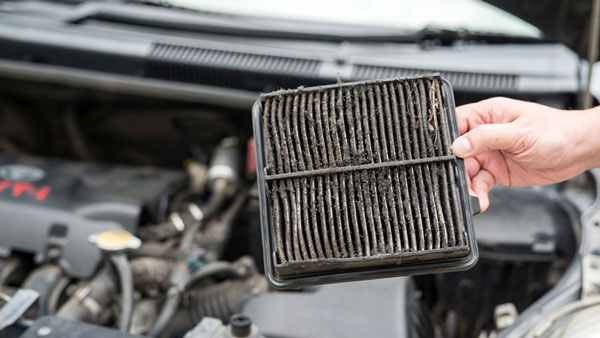
Solution:
If the filter is clogged, you must replace it. Remove the old air filter and clean the air filter housing and install a new one. Then, reattach the air filter cover.
8. Low oil levels
Low oil levels can cause the engine to overheat and shut down. Oil is in charge of lubricating the engine’s moving parts and dissipating heat. When the oil level is too low, the engine overheats and eventually seizes.
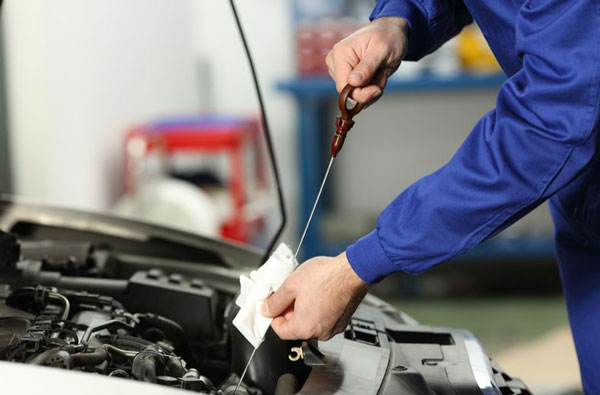
Solution:
To resolve this issue, use the dipstick to check the oil levels and top off with the correct type of oil recommended by the manufacturer.
9. Leaky coolant hose
A coolant hose is responsible for transporting coolant to and from the radiator and engine. A coolant hose leak can cause coolant to leak out, causing the engine to overheat and shut down. Over time, hoses can become brittle and crack, or they can become loose and disconnected.
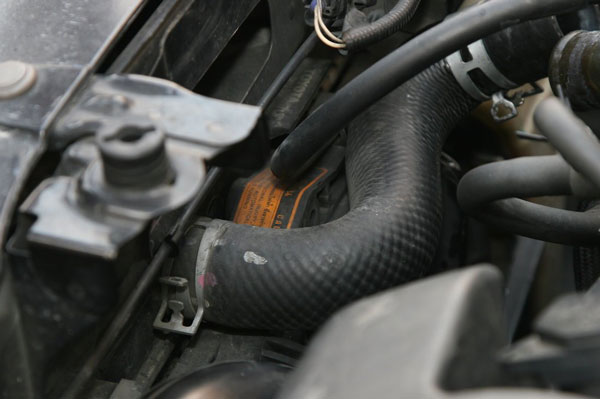
Solution:
The leaking hose must be replaced to resolve this issue. You could do this by locating the leak and then replacing the hose with a new one of the same size and shape.
What Are The Signs Of An Overheating Engine?
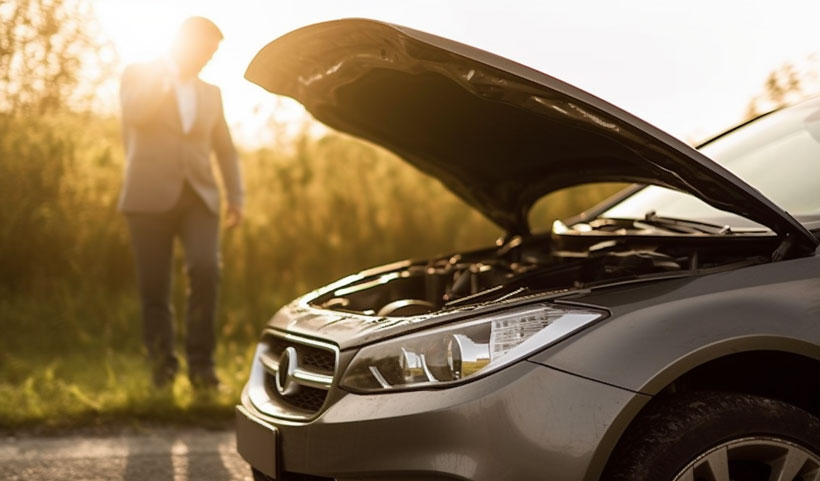
Here are some tell-tale signs that your vehicle is overheating.
Steam coming from under the hood
If you notice steam coming from under your car’s hood, it’s a sure sign of an overheating engine. This is caused by the boiling coolant leaking from the system.
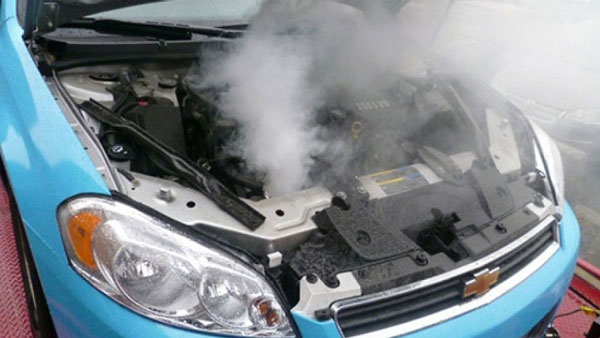
Dashboard warning light
Most cars have a dashboard warning light that indicates when the engine is overheating. If the engine temperature rises too high, this light should illuminate.
Temperature gauge increase
If you have an analog temperature gauge in your car, check to see if the needle is higher than usual. If it is, your engine is most likely overheating.
Strange smell
If you smell a sweet, syrupy odor from your car, it is most likely the smell of coolant. If it is a burnt smell, it is from oil burning.
Unusual noises
If you hear hissing, popping, or other unusual noises from your engine, it could indicate that it is overheating. It is preferable to have this checked out as soon as possible.
What To Do If Your Car Overheats And Dies?
If your car overheats and dies, you should take the following steps:
- Stop and turn off the engine. Continuing to drive an overheated vehicle can result in severe engine damage
- Check the radiator’s coolant level. Add coolant to the appropriate level if the level is low
- Check for leaks in the hoses and radiator. If you notice any leaks, have the car towed to a mechanic
- Allow at least 15 minutes for the car to cool before restarting it
- If the vehicle starts, drive slowly and avoid heavy loads or high speeds to allow the engine to cool
- If the car won’t start or continues to overheat, have it towed to a mechanic for further diagnosis and repair
Here is a video to visually help you understand more on this topic.
FAQs
Here are other related questions.
No, it is not advisable to continue driving an overheated vehicle. When a car overheats, it means the engine cannot dissipate heat properly, which can cause engine damage.
It is recommended to wait at least 15 minutes after a car has overheated before attempting to restart it.
Damage to the cylinder head, head gasket, pistons, and other internal components can result from an overheated car engine. It can also cause engine block warping or cracking and damage the radiator and cooling system.
Conclusion
Car overheating can be caused by several factors, ranging from a low coolant level to a failed water pump. Understanding the common causes and how to fix them allows you to keep your car running smoothly and avoid costly repairs.
Besides, always consult the owner’s manual and seek professional assistance if you need clarification on a repair. Regular maintenance and check-ups can also prevent overheating and extend the life of your vehicle.
